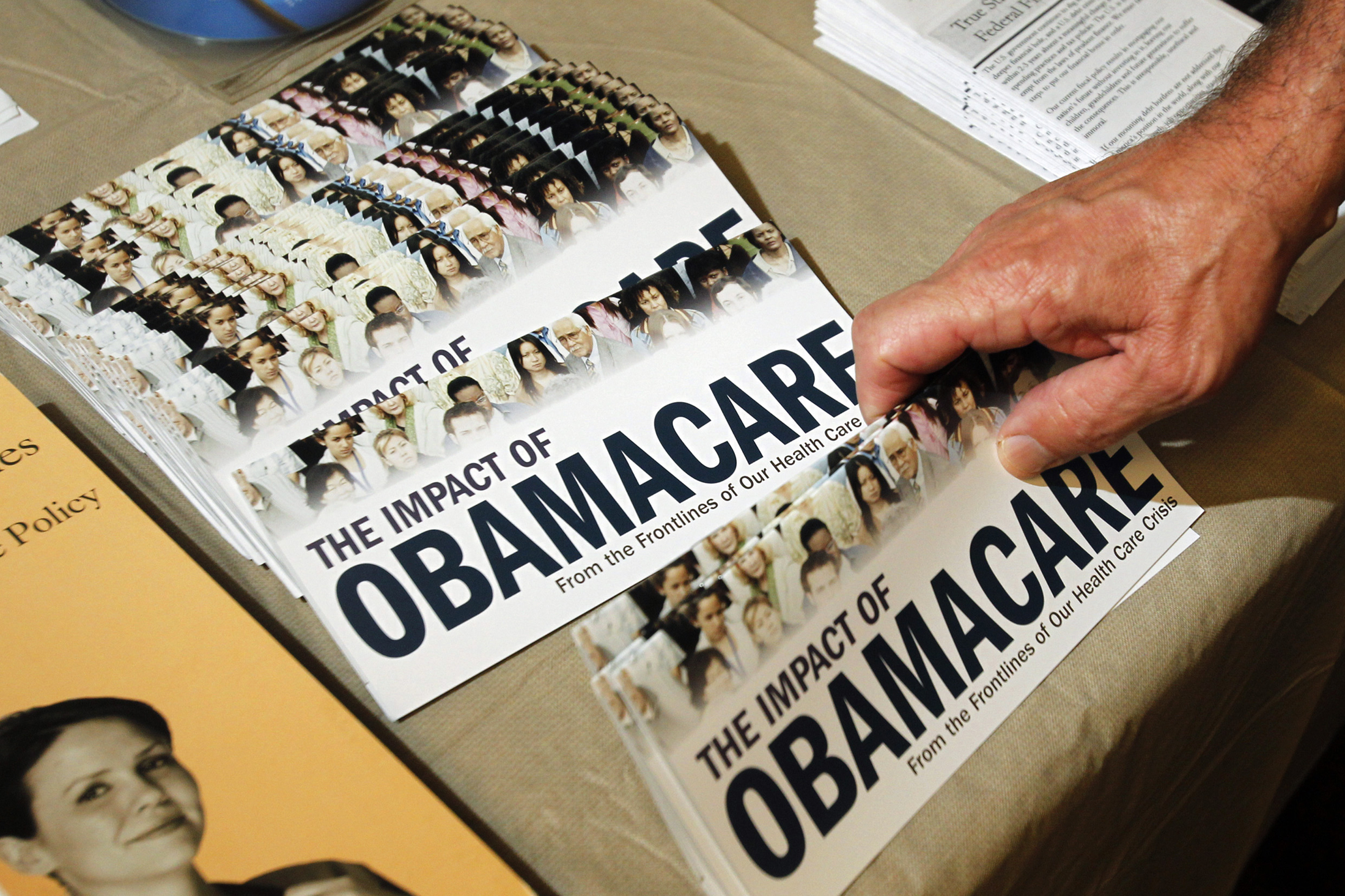
House Republicans will vote again Tuesday to repeal the Affordable Care Act. But despite now 56 votes, six years of debate, three elections and two Supreme Court cases, they remain no closer to agreement on what would happen next if they were to overturn the law.
With President Obama in the White House, the question has often been a moot point, since any congressional efforts to kill off Obamacare are doomed from the beginning. But the chance that the Supreme Court might do the job for them has raised anew the question of what the Republican alternative would look like.
On March 4, the court will hear arguments in King v. Burwell. If the court’s conservatives rule against the Obama administration, from five to around eight million Americans in the 37 states that didn’t create their own ACA insurance exchanges could lose federal subsidies for health insurance, effectively ending their coverage.
That would put the new Republican-controlled Congress in the hot seat to either fix the law or finally agree on an alternative.
At a Republican retreat last month, House Ways and Means Chairman Paul Ryan and Energy and Commerce Committee Chairman Fred Upton briefed members about Obamacare, including a best strategy on a “patient-centered response” to the case, according to a GOP aide.
“They talked about it a broad sense—not in any real detail,” says Louisiana Rep. John Fleming, who has worked to write an alternative before. “We just agree that if this thing goes down in the Supreme Court than we’re going to have to come back with something.”
“They’re going to be people that are unhappy with us because some people are getting subsidies and they like them,” added Fleming. “They’ve got health care coverage for the first time and they want to keep it.”
In the past few weeks, Ryan, Upton, and Minnesota Rep. John Kline have led a task force to craft an Obamacare replacement plan and Sens. Lamar Alexander, Orrin Hatch and John Barrasso are leading a similar effort in their chamber. Congressional Republicans including Senate Majority Leader Mitch McConnell will likely oppose restoring the tax credits if the Supreme Court knocks them down.
Conservative health care experts, such as the American Enterprise Institute’s Thomas Miller, have argued that Congress needs a short-term strategy allowing enrollees to maintain coverage for the rest of 2015 and a more significant one beginning in 2016 to “reassure” Supreme Court justices deciding the case that chaos won’t ensue.
One such long-term conservative solution is to allow a state to essentially opt out of Obamacare’s regulations and requirements and set up another system. A proposal put forward by Yuval Levin and James C. Capretta of the Ethics and Public Policy Center is designed to provide at least catastrophic coverage at a lower cost.
“In that system, state residents not offered health coverage by their employers could receive a federally funded, age-based credit for the purchase of any state-approved health-insurance product—including those bought outside of any exchange and regardless of whether they meet ObamaCare’s coverage requirements,” they wrote in a Wall Street Journal op-ed in December.
But considering that the GOP has not agreed on an alternative since Obamacare passed, it would be a massive lift for the party to craft one in four or five months. And Congress could still choose to pass the buck, since it’s up to the states whether or not to set up their own exchanges.
Under that scenario, the Supreme Court’s decision might be more like its 2012 decision that allowed states to opt out of the law’s Medicaid expansion. While many red states immediately took that route, some have been finding ways to accept it after all.
Alexander even suggested that the final say on the health-care law’s future will come down to the states.
“The first thing the states need to be aware of is if they like Obamacare, they can keep it because every state can adopt a state exchange under the law and then every citizen of that state can get Obamacare and a subsidy if they’re eligible,” he said. “Perhaps what we might do then is offer another option for states that don’t like Obamacare that gives them more flexibility.”
More Must-Reads from TIME
- Inside Elon Musk’s War on Washington
- Meet the 2025 Women of the Year
- Why Do More Young Adults Have Cancer?
- Colman Domingo Leads With Radical Love
- 11 New Books to Read in Februar
- How to Get Better at Doing Things Alone
- Cecily Strong on Goober the Clown
- Column: The Rise of America’s Broligarchy
Contact us at letters@time.com